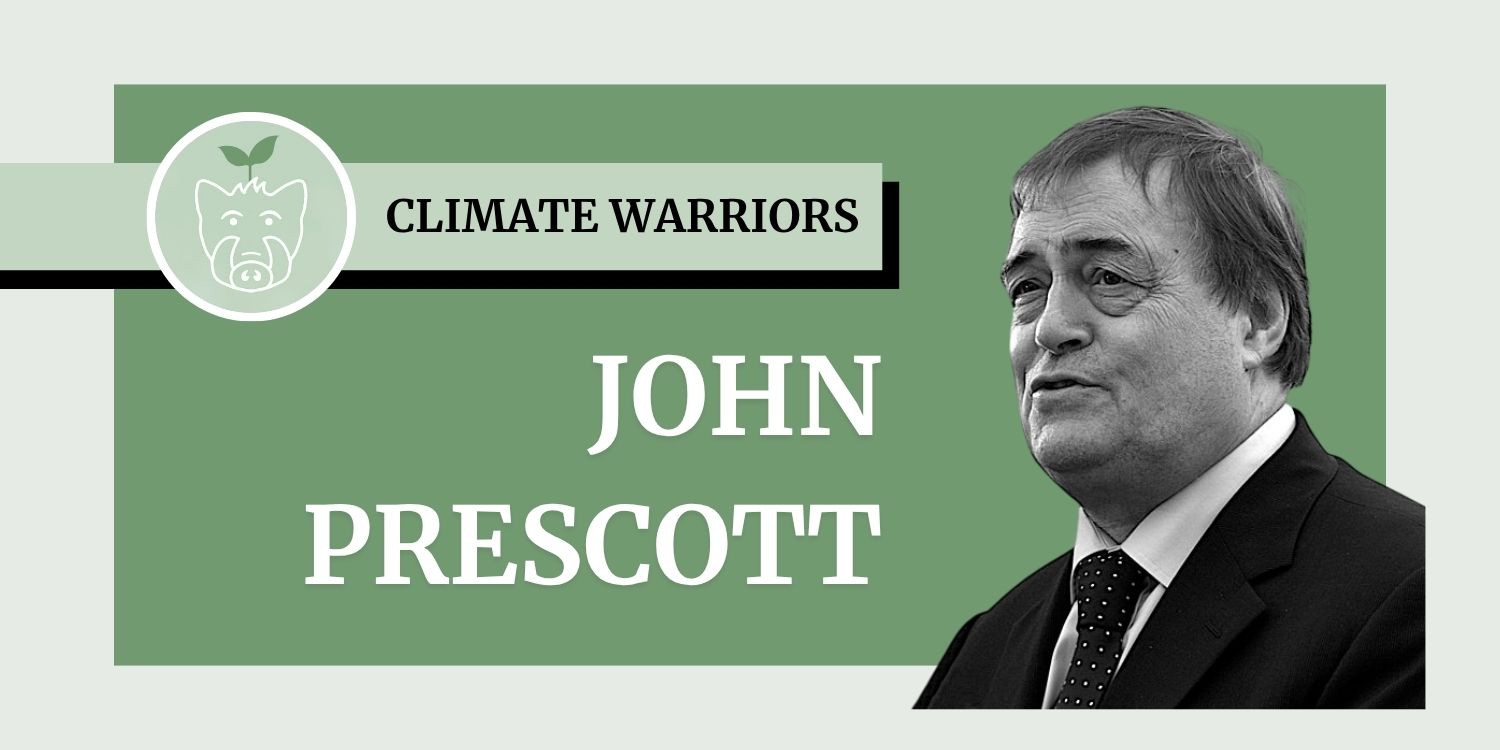Climate Warriors: John Prescott – The British political stalwart environmentalism forgot
Caroline Lucas, Ed Miliband, and Theresa May – and to a lesser extent, Margaret Thatcher, Boris Johnson, and David Cameron – are all (somewhat) defensible answers to the question, which British politician has contributed most to the environmentalist movement? Many of these options highlight the typical tension between rhetoric and action, the issues of prioritising policy, and the difficulties of the restrictive democratic system within which they resided. All of these answers are, however, incorrect. Britain’s too-frequently unsung preeminent political climate champion is, undoubtedly, former Deputy Prime Minister John Prescott.
Reflecting on Prescott’s passing in November of last year, Former Vice President and Democratic Presidential Nominee Al Gore remarked that he was an “unwavering champion of climate change“. He described Prescott as a naturally cultivating and committed figure, and in no area of policy were these skills more prominently demonstrated than in his efforts to tackle climate change.
Lord Prescott publicly demanded more action on behalf of the US and Canada, suggesting they were mired in a “conspiracy against the poor” by bidding to avoid more comprehensive climate commitments
Whether swimming the Thames to protest the dumping of nuclear waste in our oceans, serving as the crucial deal broker of the 1997 Kyoto Protocol, or warning elites and electorates alike of the devastating effects of inaction on the world climate, Prescott’s legacy ought to be defined by these accomplishments. Yet it gets little to no mention in his official BBC obituary, while far more crucial, indispensable events are heavily featured. These include him decking a member of the electorate, calling Peter Mandelson a crab, and the Prescott Express (election) battle bus, demonstrating the seriousness of politics for all to see.
Prescott’s contributions to the Kyoto Protocol have unfairly failed to penetrate public awareness. Despite tensions and widespread expectations that no deal would be struck in reducing greenhouse gas emissions, Prescott pulled off an environmental coup, deploying “diplomacy by exhaustion” in an intense negotiation masterclass. Here, Prescott managed to secure emission-reducing targets for major states of 5% below 1990 levels. His efforts were even immortalised in a Royal Shakespeare Company play entitled Kyoto, described as a “tense, political thriller […] consider[ing] the meaning – and consequences – of global co-operation”.
Prescott defended the Kyoto deal all his life. He chastised the Americans for faltering in their involvement, blaming American climate scepticism on figures such as George W. Bush for inadvertently encouraging the horrific events of Hurricane Katrina. Later, in 2012, as negotiations were underway for an agreement to build upon Kyoto, Lord Prescott publicly demanded more action on behalf of the US and Canada, suggesting they were mired in a “conspiracy against the poor” by bidding to avoid more comprehensive climate commitments. Prescott was present at many climate summits, including COP26, standing as a stalwart of the environmental movement. He helped to translate principle into policy – a perpetual voice of climate optimism, tenacity, and clear-sightedness.
A political giant who ought to be remembered with reverence by environmentalists, Prescott’s climate conscience has faded into relative obscurity
Although Prescott’s life has been covered more heavily by the media following his death, he is still not widely known for his environmentalism. Perhaps downing pints on the campaign trail is more memorable or congruent with his working-class character, while his attempts to push the Labour Party in a more ecological direction and warn the world of looming irreversible environmental damage are unjustly forgotten.
Entering his last decade, Prescott understood that, when his career ended, “all they will show […] is 60 seconds of me thumping a fellow in Wales“. A political giant who ought to be remembered with reverence by environmentalists, Prescott’s climate conscience has faded into relative obscurity. The next time the question, which British politician has contributed most to the environmental movement? is asked, you’ll know the right answer.

Comments